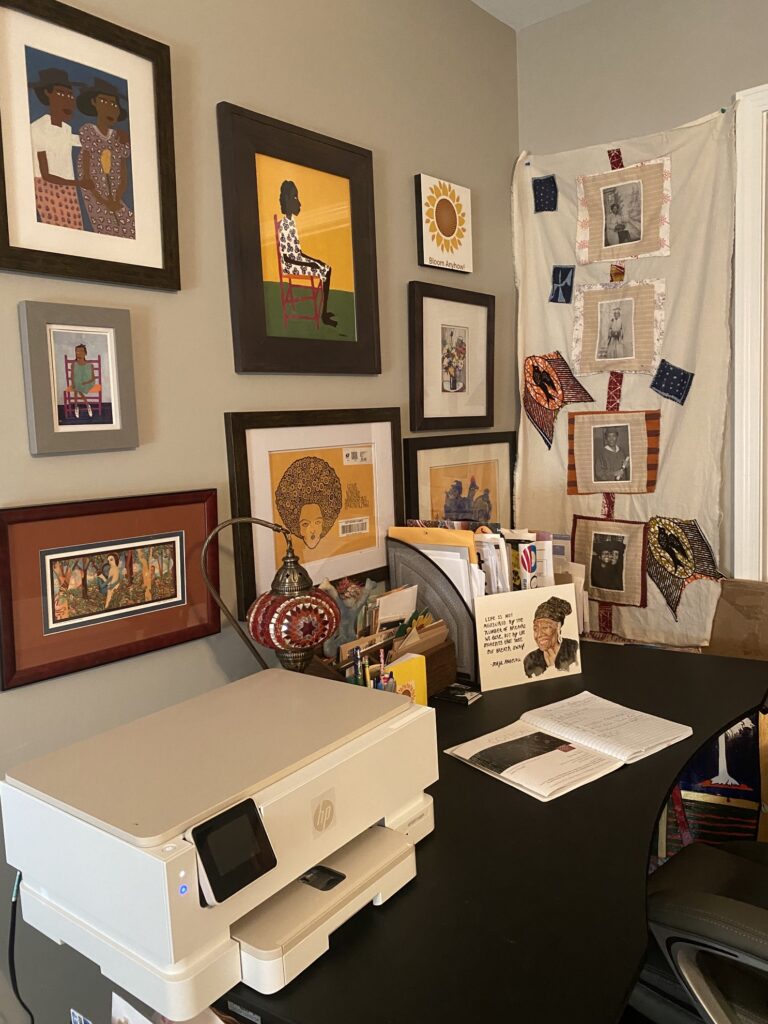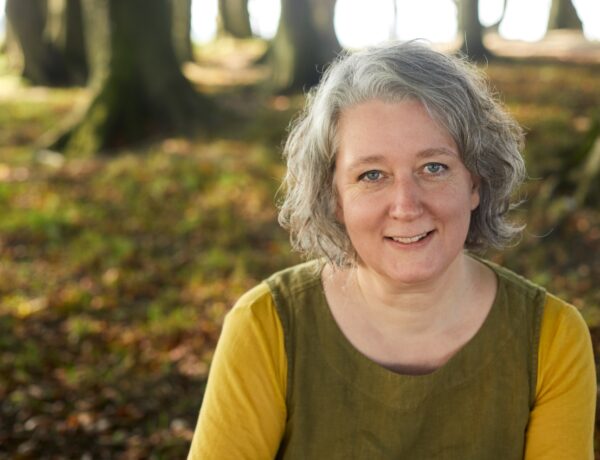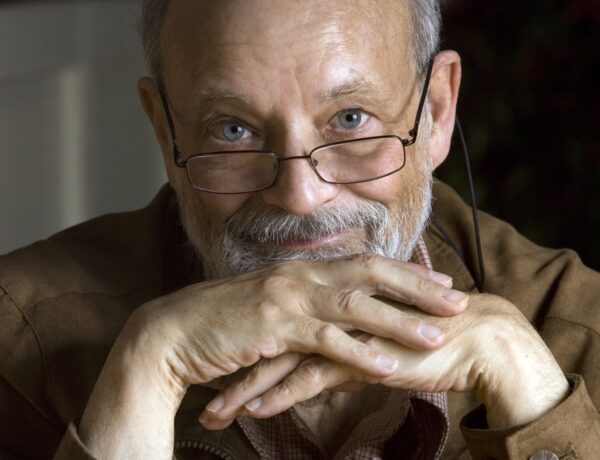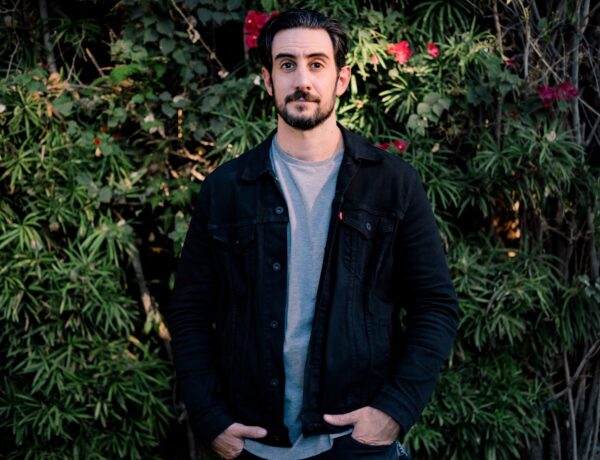Glenis Redmond is a poet and teaching artist based in Greenville, South Carolina. As the First Poet Laureate of Greenville, she is dedicated to promoting poetry and the arts in her community.
She has authored six books of poetry and has received numerous awards for her work, including the Governor’s Award and the Peacemaker Award. In addition to her work as a poet, Glenis has spent almost three decades touring the country as a teaching artist and has facilitated poetry workshops for school districts across the country.
Glenis has also served as the mentor poet for the National Student Poets Program through Scholastic Art and Writing Awards. Her poetry has been featured on NPR and PBS, as well as in publications like Orion Magazine, storySouth, and The New York Times.
Looking for inspiration to help you achieve your writing goals? Subscribe to our newsletter for exclusive insights into the routines, habits, and techniques of some of the most celebrated authors in history.
Hi Glenis, great to have you here with us today! You are the First Poet Laureate of Greenville, South Carolina, and have received numerous awards for your work as a poet. Can you talk about what it means to you to be recognized for your writing, and how it has influenced your career?
I accept graciously all of the awards bestowed on me. Having been diagnosed with Stage 3 Multiple Myeloma in 2019, I have learned to receive beauty without hesitation. I have worked hard in my field, and it is lovely to be recognized as the First Poet Laureate of Greenville. The awards and the Poet Laureate post demonstrates how far I have come.
As a Junior at Woodmont High School in the 80s, a guidance counselor advised me to pursue the vocational trek, cosmetology or the culinary arts even though I was an honor roll student. It is not as if I believe that there is anything wrong with the vocational route, but I had the grades and a desire to go to college.
On my own, I was determined to go to college, and I was the first to graduate from college in my family. I majored in psychology at Erskine College. Then, I worked in the field for seven years. Then I heard Lucille Clifton recite her poem, “Won’t You Celebrate with Me” on Bill Moyers show, The Language of Life. I took her literally and began my poetry career in earnest.
I have been working in the poetry field professionally for almost three decades now. I received my first poetry award in 1995. It was the Carrie McCray Literary Award. I was very proud of that award. I admired Carrie McCray, and I was able to meet her at the South Carolina Writers Network Conference and to also take a workshop from her. It was a validation that I was on the right path.
Then, fast forward to now––I received The Governor’s Award and was inducted into the South Carolina Academy of Authors, as well as appointed to the Poet Laureate position in Greenville. These moments speak to my steadfastness as a poet and a teaching artist. I am honored to be recognized locally and nationally.
As the mentor poet for the National Student Poets Program since 2014, can you talk about what it’s like to work with these young poets, and how you approach mentoring and teaching them?
I have been a mentor for NSPP for eight years. Every year I have a stellar crop. They come to me already as exceptional poets schooled by their teachers and mentors. My goal is to coach them to read their work with confidence. I tell them that the only way for them to get better at reading your work––is to read your work as much as possible.
It is important for poetry to become a kinesthetic extension. We meet two or three times via Zoom. I give them notes on how they read. I also give them homework, activities and stress how important it is for them to read their poems in front of friends, family and any other audience they can find. Then, I meet with them in D.C., and there I will conduct a live workshop before they debut their work to the world at large sometimes at the Library of Congress, The White House or for the Institute of Museum and Library Services.
You believe that poetry is the mouth that speaks when all other mouths are silent. Can you talk about what this statement means to you, and how you think poetry can be used to give voice to those who might not otherwise be heard?
Poetry is the language of the heart. When I am still, I know what I think and feel. In the stillness, I become the most whole deep listening.
I believe that poets are the canaries in the coal mine.
We, canaries at the mouth of mines flash golden while detecting poison singing warning. We don’t die We write
We/they speak about what is to come, when the rest of the world has their heads turned away. Poets are seers. They are empaths. They are the town criers. Do not ask a poet a question if you do not want the truth. I wrote a poem for Greenville Tech Charter High School for Black History Month this year titled, “Storyteller.” This is an excerpt from it:
Write you, me and we in in indelible ink signatures they cannot erase. Replace you. Us. Our history. Raise your head. Use your mouthpiece. Loud or low, as long as it’s on blast. Tell our stories–– your story, but say it whole.
Do you struggle to stay focused while writing? You’re not alone! That’s why Famous Writing Routines recommends Freedom – the ultimate app and website blocker for Mac, Windows, Android, iOS, and Chrome. With over 2.5 million users, Freedom helps writers stay on task and avoid distractions. Get started for free today and reclaim your productivity!
Can you tell us about your writing routine?
I had three books published in the last year. During this time, I was doing more compiling and editing to prepare these works for publication. I have one more book that I am preparing for publication, so I work on it daily reading and editing. I will be finished with that project in the next month.
Then, I will turn my gaze back to generating poems for my next project. When I am generating work, I work about 4-5 hours a day. I have a desk, but I do not use it to write poems. I write mostly in my den, in my dining room or out on my patio. Sometimes the muse wakes me up in the middle of the night and I will just stay in bed and write if my day is free from appointments.
I love when I have stretches of days that I do not have to go out in the world. Being on disability due to Multiple Myeloma, I do not keep a rigorous schedule. This is when I am free to journey and let my imagination take hold. I can cavort with my ancestors. Channel. Record.
What does a typical day look like for you?
I am not sure if I have ever had a typical day. I am a morning person, so I wake early around 5:30 or 6:00. I meditate before my feet touch the floor. I say my prayers to Mother/Father God. I visualize and manifest. This ritual routine takes about one hour. I am a tea drinker, so I will have a little breakfast. Then, I get to writing. Pen and Journal.
I write all my poems by hand first. I generally write the first few drafts by hand. Then, I transfer them over to my laptop. Yet, I believe the writing takes place long before the poem is on the page. I can muse, research and think about a poem for years. This is rich fertile ground. Then, I reach a critical mass and the poem seems to flow effortlessly, but only after gestating for years.
If you could have a conversation with any author throughout history about their writing routine and creative process, who would that person be?
I would sit with Lucille Clifton. Of all the poets, her work and lineage speaks to me the most. Her memoir, Generations was instructive and restorative for me as a black woman writer. She was a mystic and I respect her sixth sense. I would love to learn more about her practice. I think about her often. I ask her to guide my hand and my heart. I have much to learn from her. She was a master of compression.
I’d love to know about the books you’re reading at the moment. What have been some of your favourite recent reads?
I am reading The Black Period: On Personhood, Race, and Origin by Hafizah Augustus Geter, Walking Gentry Home: A Memoir of My Foremothers in Verse by Alhora Young, Measuring in Liters A Continuous Journey Through Chambers of Sickled Cells and Jaundice by Darryl Alladice and Gorgoneion by Casey Rocheteau.
What does your current writing workspace look like?
In 2019, I was diagnosed with stage 3 Multiple Myeloma so I splurged and bought an adjustable desk that can go from sitting to standing. There were days that I was so weak that I rolled out of bed and took two steps to my desk. My desk is in one corner of my room but framed by eight pieces of artwork. Four of them are by William H. Johnson, an African American artist from Florence, South Carolina born in 1901.
The most central artwork is his Lil Sweet. It is the cover of my latest full-length collection, The Listening Skin. I am not a quilter like my foremothers, but I want to create in their language, a Legacy Quilt. I began right after my Stem Cell Transplant in 2020. It has photographs of my mother, me and my twin daughters in our high school cap and gowns.
My mother was the first in her family to graduate from high school. I also have my grandmother at the top, she only had a 3rd grade education, but she made our maternal line possible. She was the wisest person I knew. She died at 109 years old. This lineage I carry with me as I write.

Affiliate disclaimer: Some links on this website are affiliate links. We may earn a small commission if you make a purchase through these links, but only promote products we truly believe in. We disclose affiliate links and give honest reviews.



No Comments